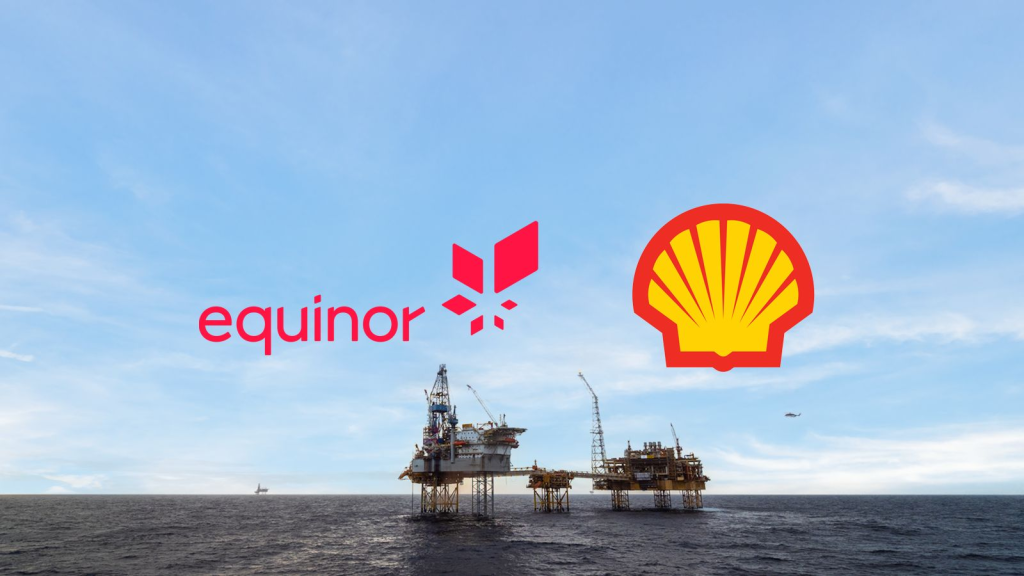Shell and Equinor have said they will combine their offshore oil and gas assets in the North Sea to create a new company with 1,300 employees.
Based in Aberdeen, it will be the North Sea’s biggest oil and gas producer and is expected to produce more than 140,000 barrels of oil equivalent (BOE) per day next year.
There will not be job losses as a result of the deal, Shell said, adding that it could “enhance” the longevity of UK oil and gas jobs.
Equinor employs around 300 people in oil and gas roles in the UK, while Shell employs about 1,000 people in similar jobs.
Zoe Yujnovich, director of Shell’s integrated gas and upstream business, said “anyone who has a majority of their time” working on Shell and Equinor’s North Sea assets, such as oil rigs, will transfer to the new company.
She added that the deal could result in a “growing and more prosperous combined entity”.
“From an employee point of view, I think that that can really enhance diversity of career choices, but also, I would argue, longevity of their career under the new combined entity.”
British oil and gas has been in decline for several decades as the basin slowly gets used up.
As a result, companies like Shell have turned their focus to more attractive fields elsewhere in the world.
Under the current arrangements, Shell’s UK production business is forced to compete with those fields for investment from the global company.
The new company will be able to raise fresh finance via debt, and “won’t be repeatedly competing for investment dollars” with other energy hubs Ms Yujnovich said.
She added that the move will “sustain domestic oil and gas production for decades into the future, contributing to UK energy needs”.
However, she said that the North Sea is “no longer the prolific basin that it once was”.
Ms Yujnovich said: “After decades of production, of course, there is less oil and gas, and the maturity of the basin means that inevitably what is left is more challenging to recover.
“For production from the North Sea, to remain competitive with other global energy hubs, it is imperative that we continue to adapt to that changing reality and to do so proactively.”
The company will be a 50-50 joint venture between Shell and Equinor.
The deal is subject to regulatory approval and is expected to close by the end of 2025.



